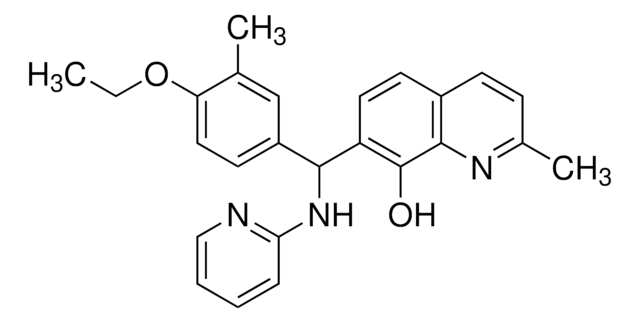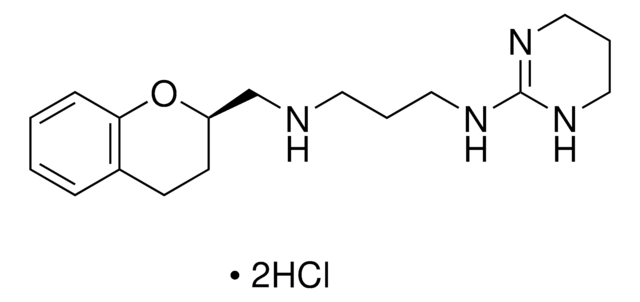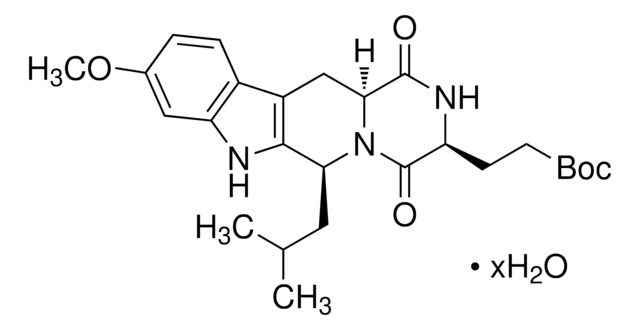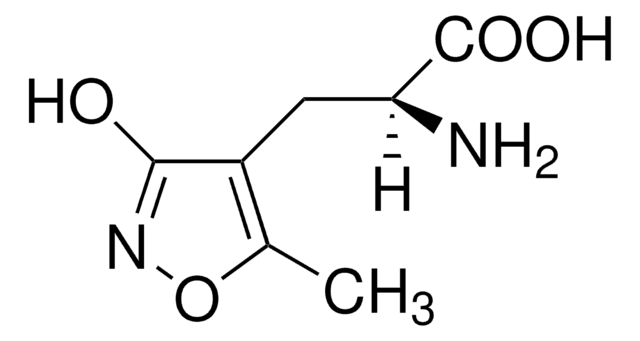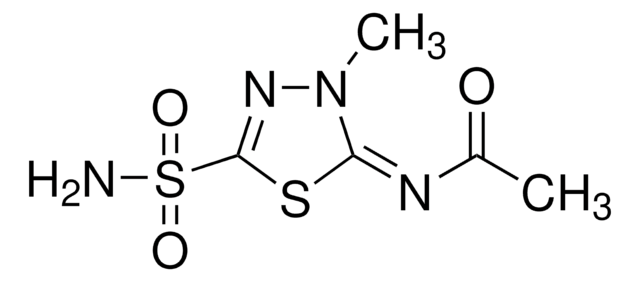SML1311
Rubone
≥98% (HPLC)
Synonym(s):
(2E)-1-(2-Hydroxy-4,6-dimethoxyphenyl)-3-(2,4,5-trimethoxyphenyl)-2-propen-1-one, 2′-Hydroxy-2,4,4′,5,6′-pentamethoxychalcone
About This Item
Recommended Products
Quality Level
assay
≥98% (HPLC)
form
powder
storage condition
desiccated
color
yellow to orange
solubility
DMSO: 2 mg/mL, clear (warmed)
storage temp.
2-8°C
InChI
1S/C20H22O7/c1-23-13-9-15(22)20(19(10-13)27-5)14(21)7-6-12-8-17(25-3)18(26-4)11-16(12)24-2/h6-11,22H,1-5H3/b7-6+
InChI key
VHCQVGQULWFQTM-VOTSOKGWSA-N
Biochem/physiol Actions
Storage Class
11 - Combustible Solids
wgk_germany
WGK 3
flash_point_f
Not applicable
flash_point_c
Not applicable
Certificates of Analysis (COA)
Search for Certificates of Analysis (COA) by entering the products Lot/Batch Number. Lot and Batch Numbers can be found on a product’s label following the words ‘Lot’ or ‘Batch’.
Already Own This Product?
Find documentation for the products that you have recently purchased in the Document Library.
Our team of scientists has experience in all areas of research including Life Science, Material Science, Chemical Synthesis, Chromatography, Analytical and many others.
Contact Technical Service